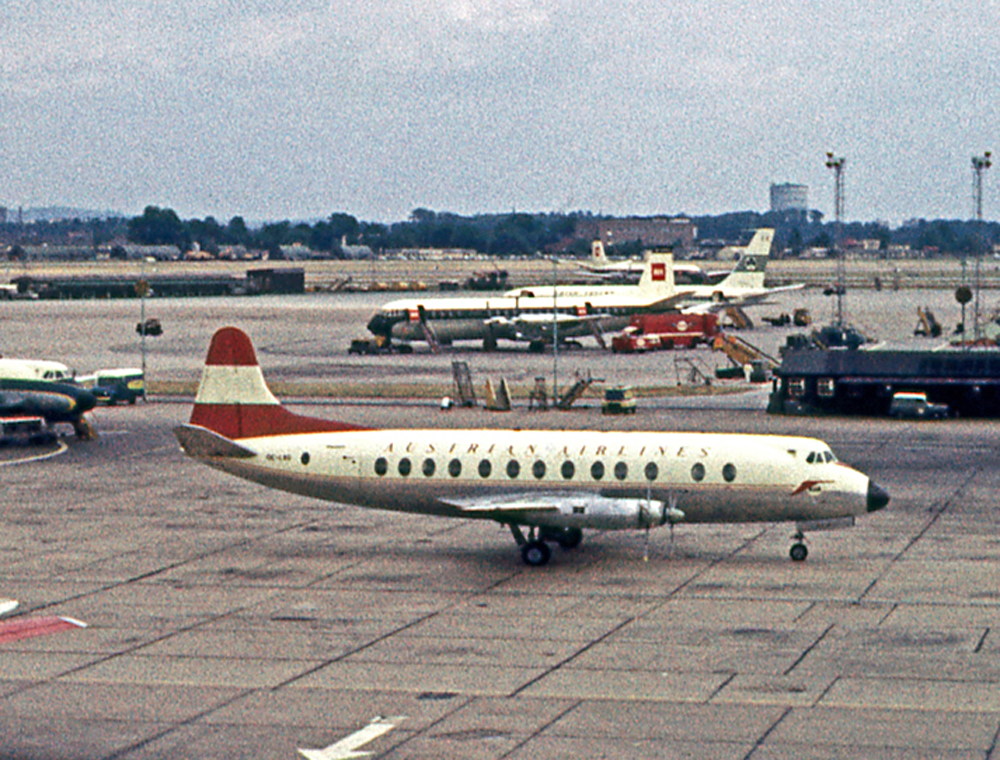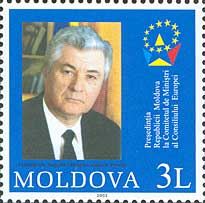|
Austria–Moldova Relations
Austria-Moldova relations are the bilateral relations between Austria and Moldova. Both countries established the diplomatic relations on 25 March 1992. Austria is represented in Moldova through its embassy in Chișinău. Moldova has an embassy in Vienna. Austria supports Moldova's EU membership. High level visits In 1996, the President of Moldova, Mircea Snegur, visited Austria. In 1997, Petru Lucinschi, President of Moldova, participated in Salzburg at the Economical Summit of central and eastern Europe. In 1999, Petru Lucinschi met with Benita Ferrero-Waldner, State Secretary to the Austrian Federal Ministry of Foreign Affairs. He said that there were bright prospects for Moldova and Austria to expand their bilateral mutually beneficial cooperation, and spoke up for more active Austrian investment in privatized Moldovan enterprises and for creating the legal framework to broaden the bilateral interaction. In 2003, Vladimir Voronin, President of Moldova, participated at the 1 ... [...More Info...] [...Related Items...] OR: [Wikipedia] [Google] [Baidu] |
Bilateral Relations
Bilateralism is the conduct of political, economic, or cultural relations between two sovereign states. It is in contrast to unilateralism or multilateralism, which is activity by a single state or jointly by multiple states, respectively. When states recognize one another as sovereign states and agree to diplomatic relations, they create a bilateral relationship. States with bilateral ties will exchange diplomatic agents such as ambassadors to facilitate dialogues and cooperations. Economic agreements, such as free trade agreements (FTA) or foreign direct investment (FDI), signed by two states, are a common example of bilateralism. Since most economic agreements are signed according to the specific characteristics of the contracting countries to give preferential treatment to each other, not a generalized principle but a situational differentiation is needed. Thus through bilateralism, states can obtain more tailored agreements and obligations that only apply to particular cont ... [...More Info...] [...Related Items...] OR: [Wikipedia] [Google] [Baidu] |
Transnistrian
Transnistria, officially the Pridnestrovian Moldavian Republic (PMR), is an unrecognised breakaway state that is internationally recognised as a part of Moldova. Transnistria controls most of the narrow strip of land between the Dniester river and the Moldovan–Ukrainian border, as well as some land on the other side of the river's bank. Its capital and largest city is Tiraspol. Transnistria has been recognised only by three other unrecognised or partially recognised breakaway states: Abkhazia, Artsakh and South Ossetia. Transnistria is officially designated by the Republic of Moldova as the Administrative-Territorial Units of the Left Bank of the Dniester ( ro, Unitățile Administrativ-Teritoriale din stînga Nistrului) or as ("Left Bank of the Dniester"). The Council of Europe considers the territory to be under military occupation by Russia. The region's origins can be traced to the Moldavian Autonomous Soviet Socialist Republic, which was formed in 1924 within the ... [...More Info...] [...Related Items...] OR: [Wikipedia] [Google] [Baidu] |
Austria–Moldova Relations
Austria-Moldova relations are the bilateral relations between Austria and Moldova. Both countries established the diplomatic relations on 25 March 1992. Austria is represented in Moldova through its embassy in Chișinău. Moldova has an embassy in Vienna. Austria supports Moldova's EU membership. High level visits In 1996, the President of Moldova, Mircea Snegur, visited Austria. In 1997, Petru Lucinschi, President of Moldova, participated in Salzburg at the Economical Summit of central and eastern Europe. In 1999, Petru Lucinschi met with Benita Ferrero-Waldner, State Secretary to the Austrian Federal Ministry of Foreign Affairs. He said that there were bright prospects for Moldova and Austria to expand their bilateral mutually beneficial cooperation, and spoke up for more active Austrian investment in privatized Moldovan enterprises and for creating the legal framework to broaden the bilateral interaction. In 2003, Vladimir Voronin, President of Moldova, participated at the 1 ... [...More Info...] [...Related Items...] OR: [Wikipedia] [Google] [Baidu] |
Foreign Relations Of Moldova
After achieving independence from the Soviet Union, the Republic of Moldova established relations with other European countries. A course for European Union integration and neutrality define the country's foreign policy guidelines. In 1995, the country became the first post-Soviet state admitted to the Council of Europe. In addition to its participation in NATO's Partnership for Peace program, Moldova is a member state of the United Nations, the Organization for Security and Co-operation in Europe (OSCE), the North Atlantic Cooperation Council, the World Trade Organization, the International Monetary Fund, the World Bank, the Francophonie and the European Bank for Reconstruction and Development. In 2005, Moldova and EU established an action plan that sought to improve the collaboration between the two neighboring structures. After the Transnistria War, Moldova sought a peaceful resolution to the Transnistria conflict by working with Romania, Ukraine, and Russia, calling for in ... [...More Info...] [...Related Items...] OR: [Wikipedia] [Google] [Baidu] |
Foreign Relations Of Austria
The 1955 Austrian State Treaty ended the four-power occupation and recognized Austria as an independent and sovereign state. In October 1955, the Federal Assembly passed a constitutional law in which "Austria declares of her own free will her perpetual neutrality." The second section of this law stated that "in all future times Austria will not join any military alliances and will not permit the establishment of any foreign military bases on her territory." Since then, Austria has shaped its foreign policy on the basis of neutrality. In recent years, however, Austria has begun to reassess its definition of neutrality, granting overflight rights for the UN-sanctioned action against Iraq in 1991, and, since 1995, contemplating participation in the EU's evolving security structure. Also in 1995, it joined the Partnership for Peace, and subsequently participated in peacekeeping missions in Bosnia. Discussion of possible Austrian NATO membership intensified during 1996. ÖVP and Te ... [...More Info...] [...Related Items...] OR: [Wikipedia] [Google] [Baidu] |
GRAWE Insurance
Grazer Wechselseitige Versicherung or Graz Mutual Insurance Company is one of the largest Central European insurance companies. Its headquarters are located in Graz, Austria. History GRAWE was founded in 1828 by Archduke Johann as an "insurance institute for Styria, Carinthia and Carniola", with an original focus purely on fire insurance. Subsidiaries GRAWE is the fifth largest insurance group in Austria. GRAWE has subsidiaries in Central and Eastern European countries such as Slovenia, Croatia, Hungary, Serbia, Bosnia and Herzegovina, Ukraine, Bulgaria, Romania, Moldova, Macedonia, and Montenegro. Serbia GRAWE Osiguranje a.d. was registered as the first insurance company with foreign capital in Serbia. The company entered the Serbian market in 1997. GRAWE started out as a Greenfield investment with the aim to grow and develop in the Serbian market. Partnerships GRAWE has agreements with Kärntner Landesversicherung (Carinthian insurance), Niederösterreichische ... [...More Info...] [...Related Items...] OR: [Wikipedia] [Google] [Baidu] |
Moldtelecom
{{Infobox company , name = Moldtelecom , logo = , type = JSC , foundation = 1 April 1993 , location = Chişinău, Moldova , key_people = Alexandru Ciubuc CEO interim , num_employees = 2,750 employees As of 2019 , industry = Telecommunications , products = Fixed-line telephony, Internet services, IPTV, Mobile telephony Mobile telephony is the provision of telephone services to phones which may move around freely rather than stay fixed in one location. Telephony is supposed to specifically point to a voice-only service or connection, though sometimes the li ... , homepage = https://www.moldtelecom.md Moldtelecom is the national telecommunications operator and also the largest telecommunications company in the Republic of Moldova. On 1 April 1993, following the restructuring of the telecommunications sector in the Republic of Moldova, ‘Moldtelecom’ State-Owned Enterprise was established. On 5 January 1999, the company has been reorganized and became a Joint- ... [...More Info...] [...Related Items...] OR: [Wikipedia] [Google] [Baidu] |
Raiffeisen Zentralbank
Raiffeisen Zentralbank Österreich A.G. was the central institution of the Raiffeisen Banking Group Austria (RBG). The central bank was merged with its subsidiary Raiffeisen Bank International in 2017. It functions as the group centre for the entire RZB Group, of which the listed company Raiffeisen Bank International AG (RBI) with its banking network in Central and Eastern Europe (CEE) is the largest member. It has subsidiaries in, amongst others: Ukraine, Hungary, Czech Republic, Romania, Kosovo, Albania, Bulgaria, Serbia, Bosnia-Herzegovina, Croatia, and Switzerland. The largest of these subsidiaries by far is Raiffeisenbank (Russia) which accounts for 74 percent of the company's pretax profit. The RZB Group is the third largest Austrian bank. As of end-2010, the balance sheet total of the RZB Group amounted to 136.5 billion euros. RZB has several specialised subsidiaries. Raiffeisen Zentralbank Österreich AG is a member of (Austrian Raiffeisen Association), which amongst ... [...More Info...] [...Related Items...] OR: [Wikipedia] [Google] [Baidu] |
Austrian Airlines
Austrian Airlines AG, often shortened to Austrian, is the flag carrier of Austria and a subsidiary of the Lufthansa Group. The airline is headquartered on the grounds of Vienna International Airport in Schwechat where it also maintains its hub. As of July 2016, the airline flew to six domestic and more than 120 international year-round and seasonal destinations in 55 countries and is a member of the Star Alliance. The airline was formed in 1957 by the merger of Air Austria and Austrian Airways, but traces its history back to 1923 at the founding of Austrian Airways. Throughout much of the company's existence, it was a state-owned entity. On 31 March 1958, the airline performed its scheduled service, flying a leased Vickers Viscount from Vienna to Zurich and London; it subsequently purchased its own Viscount fleet. On 18 February 1963, Austrian ordered its first jet-powered airliner, the Sud Aviation Caravelle. It subsequently introduced various models and derivatives of the ... [...More Info...] [...Related Items...] OR: [Wikipedia] [Google] [Baidu] |
Ursula Plassnik
Ursula Plassnik (born 23 May 1956) is an Austrian diplomat and politician. She was Foreign Minister of Austria between October 2004 and December 2008. She has served as the Austrian ambassador to Switzerland from 2016 to 2021. Early life and career Plassnik is from the Austrian state of Carinthia and grew up in a social democratic family. She was born in Klagenfurt on 23 May 1956. From 1971 to 1972 she was an exchange student at the Foxcroft School in Middleburg, Virginia, United States. She received a law degree from the University of Vienna in 1978 and a postgraduate Certificate of Advanced European Studies (equivalent to a master's degree) from the College of Europe in Bruges, where she studied 1979–1980 (Salvador de Madariaga promotion). Subsequently, she worked in different positions in the Austrian Ministry for Foreign Affairs until 1997. Until that time she was considered to be politically neutral or even social-democratic. On 1 July 1997 she was chosen by Wolfgang ... [...More Info...] [...Related Items...] OR: [Wikipedia] [Google] [Baidu] |
Vladimir Voronin
Vladimir Voronin (; born 25 May 1941) is a Soviet and Moldovan politician. He was the third president of Moldova from 2001 until 2009 and has been the First Secretary of the Party of Communists of the Republic of Moldova (PCRM) since 1994. He was Europe's first democratically elected communist party head of state after the dissolution of the Eastern Bloc. Family and education Vladimir Nicolaevici Voronin was born in the village of Corjova, located that time in the Romanian-administrated Transnistria Governorate. Despite his Russified name, his ethnic origins are Moldovan. Although Voronin is a lifelong communist who pursued unfriendly policies towards Romania at various times during the 2000s, his grandfather Isidor Sârbu was an anticommunist fighter in Romania after 1944. Voronin's mother, Pelagheia Bujeniță, died on 2 July 2005. Voronin graduated from the Cooperation Tekhnikum (''Kooperativny tekhnikum'') of Chișinău (1961), the All-Union Institute for Food Indust ... [...More Info...] [...Related Items...] OR: [Wikipedia] [Google] [Baidu] |

